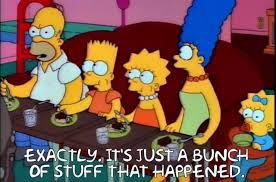Hahaha, gotcha. No, well, actually yes it is election day in the U.S., but more importantly it’s my birthday! So this week’s Tuesday list will be books that have really impacted me as a reader, or that I have loved, or that have stuck with me.

This novel (and series) is a good introduction to the the idea that in SFF, a female protagonist doesn’t have to be a Strong Female Character. Fawn is young, inexperience, and running away from home because she’s done something really stupid–but for a good reason, well, not a good reason, but an understandable reason, which is that she’s young and immature and hasn’t been properly educated by the adults in her life. She’s been let down, but instead of staying and giving in to the tides of culture and society that would force her into marriage with an asshole, she runs away, and learns a lot about herself, and has unexpected and terrifying experiences. I mean, there’s a happy ending, but there’s a lot in the middle, too.
2. Sorcerer to the Crown (Sorcerer Royal, book 1), Zen Cho

Besides being a wonderfully written novel about two young people from marginalized backgrounds who do extraordinary things, I just love the way this story tweaks the noses of everyone who’s ever made an ignorant comment about diversity for its own sake, or how anything not from the Anglo-centric canon is hard to understand and needs translation, or that women who are good at things are just MarySues. Prunella Gentleman is capable and funny and doesn’t give a damn about others’ preconceived notions about what she can do or ought to be doing. Add to that a page-turning plot about fairy kingdoms, intrigue, and secret dragons, and this is a fun, necessary read in the SFF canon.
3. A Stranger in Olondria, Sofia Samatar

A lot of what I’ve seen written about this novel call it lyrical, and yes, it is, but the thing I like most about it is how multi-faceted it is. It’s a dense read, and that’s a good thing, because there’s not only a huge history and unknown world built into the story, but also a lot of commentary about colonialism, about the privilege inherent in education and the ability to gather knowledge, about agency even unto extreme disability and even death. One of the main characters is a young woman who has died, and yet she is still given the chance to tell her story, to be fragile and terrifying, to be smart and yet naive, to be, essentially, herself. All of the characters in this novel are treated with such care that, once finished, it’s a hard world to wander your way out of.
4. Frog Music, Emma Donoghue

The complete opposite of Stephen King, who creates a horrific setting that turns out to have some kind of supernatural cause, Emma Donoghue writes the kind of scenarios that make you wish they had a supernatural cause, because the mundane, human reasons behind them are just too horrific. (This may not be the case with all her books, but so far it stands up.) Frog Music is the story of a murder, and it’s the story of two women who are about as different as they can be, and the ways in which the try to navigate a world in which their bodies, their genders, their existence, can be criminalized. Historical fiction buffs, this one’s for you.
5. Crime and Punishmen, Fyodr Dostoyevskii

For a long time this was my avowed favorite novel, and it still holds a special place for me. It was probably my first experience with an untidy narrative that lived so completely in a character’s head that all of reality seemed warped, unreal even. It’s also fitting for this list, as today is the 100th anniversary of the Bolshevik Revolution, and Crime and Punishment is nothing if not an exploration of the author’s stormy relationship both with society and with ideas of revolution.
Advertisements Share this:




